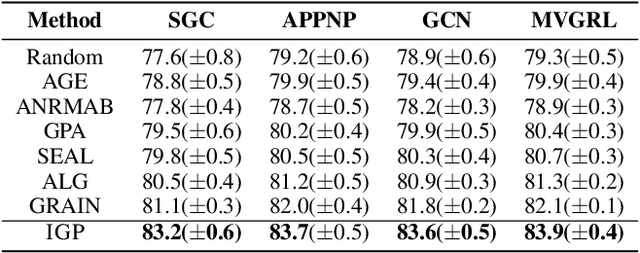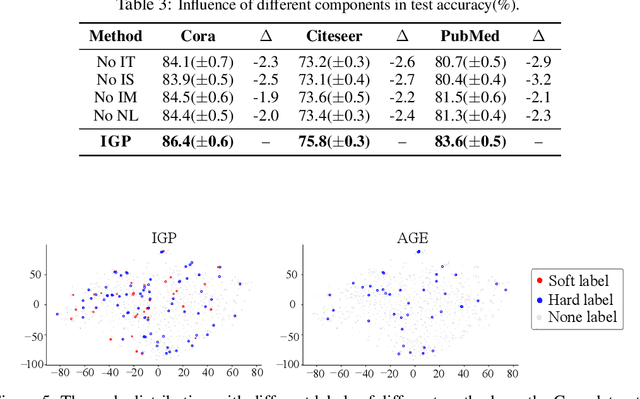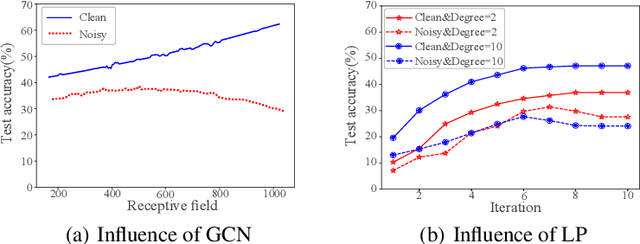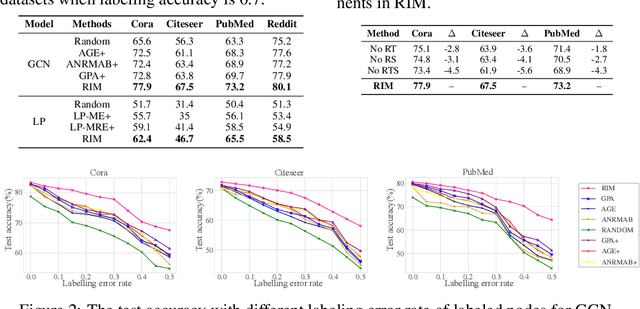Zhenbang You
Information Gain Propagation: a new way to Graph Active Learning with Soft Labels
Mar 02, 2022



Abstract:Graph Neural Networks (GNNs) have achieved great success in various tasks, but their performance highly relies on a large number of labeled nodes, which typically requires considerable human effort. GNN-based Active Learning (AL) methods are proposed to improve the labeling efficiency by selecting the most valuable nodes to label. Existing methods assume an oracle can correctly categorize all the selected nodes and thus just focus on the node selection. However, such an exact labeling task is costly, especially when the categorization is out of the domain of individual expert (oracle). The paper goes further, presenting a soft-label approach to AL on GNNs. Our key innovations are: i) relaxed queries where a domain expert (oracle) only judges the correctness of the predicted labels (a binary question) rather than identifying the exact class (a multi-class question), and ii) new criteria of maximizing information gain propagation for active learner with relaxed queries and soft labels. Empirical studies on public datasets demonstrate that our method significantly outperforms the state-of-the-art GNN-based AL methods in terms of both accuracy and labeling cost.
* 17 pages, 7 figures
RIM: Reliable Influence-based Active Learning on Graphs
Oct 28, 2021



Abstract:Message passing is the core of most graph models such as Graph Convolutional Network (GCN) and Label Propagation (LP), which usually require a large number of clean labeled data to smooth out the neighborhood over the graph. However, the labeling process can be tedious, costly, and error-prone in practice. In this paper, we propose to unify active learning (AL) and message passing towards minimizing labeling costs, e.g., making use of few and unreliable labels that can be obtained cheaply. We make two contributions towards that end. First, we open up a perspective by drawing a connection between AL enforcing message passing and social influence maximization, ensuring that the selected samples effectively improve the model performance. Second, we propose an extension to the influence model that incorporates an explicit quality factor to model label noise. In this way, we derive a fundamentally new AL selection criterion for GCN and LP--reliable influence maximization (RIM)--by considering quantity and quality of influence simultaneously. Empirical studies on public datasets show that RIM significantly outperforms current AL methods in terms of accuracy and efficiency.
 Add to Chrome
Add to Chrome Add to Firefox
Add to Firefox Add to Edge
Add to Edge